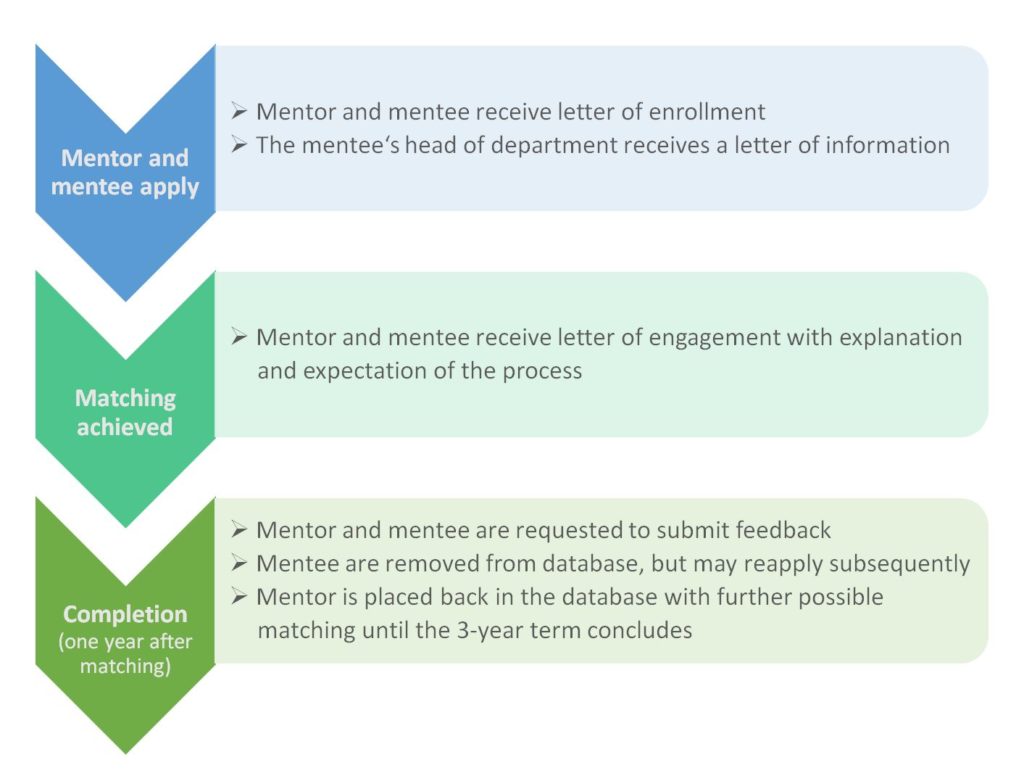Introduction
The ESHNR is happy to announce the start of its own mentoring programme for the head and neck radiologist. This has been created for radiologists who are interested in raising the quality of head and neck radiology service in their local (often non-university) hospital environment. We hope it will help them to grow their own expertise, develop their careers, enable research, access educational opportunities and maybe even acquire a few other life skills, all while maintaining a healthy work-life balance.
Goals for the society
– Promote head and neck radiology
– Improve service to patients
– Ensure that interdisciplinary colleagues see their local radiologists as reliable partners with positive impact on their patient management
– Increase high-quality research and teaching
– Rejuvenate the society and expand it geographically
Programme coordinators
Steve Connor, London/UK
Soraya Robinson, Vienna/AT
The mentee
ESHNR members in their fourth-year training onwards can apply to become mentees. It would also be suitable for those in their early years at consultant level. A letter of information will be sent to the training supervisor or head of department to explain that the program should be seen as supplementary to rather than competing with any local mentoring processes. The normal term for a mentee will be one year; however, you may both agree to prolong the mentoring on an informal basis, or you may wish to reapply for matching with another mentor.
The mentor
ESHNR members who have practiced independently in head and neck radiology for five years (at consultant level) can apply to be mentors. The mentor’s clinical practice should include head and neck radiology as an interest and involvement in research and teaching is beneficial. Previous experience as a mentor is not essential but desirable. The normal term for a mentor is three years. The mentor is a trusted and empathetic senior adviser who will listen to and talk in confidence to the mentee. They will help them develop professionally and personally, potentially “opening doors”, exploring different paths and challenging the way they think. Whilst they may teach and educate–this is not the primary role. It is a two way process and they may well gain from “reverse mentoring”.
The matching
ESHNR calls for mentors and mentees and will match and introduce them. Mentor and mentee should be from different countries to facilitate gaining a bigger picture and exchanging views, where both are supposed to profit. We will aim to match specific skills of the mentor with requirements of the mentee. The names of mentors will be available on the website, however, we cannot ensure that you are matched with any specific mentor of your choice. The process will be managed centrally at ESHNR Office in terms of database and availability of personal information. There will be prioritisation of mentees who are deemed to lack local opportunities and support for career development and who are felt to benefit most from the matching process. There is no system for changing mentor-mentee matching once this is established. If we are not able to match an appropriate mentor/mentee immediately then we will keep your information on file for the full term. Mentors should be expect to be matched to three candidates over the course of their term whilst mentees will expect to be matched to a mentor on one occasion for a period of a year. Mentees and mentors may reapply if they are not successfully matched during this term.
The mentoring process
The duration of the ESHNR mentoring programme is one year but the mentor and mentee may agree to continue the mentoring process on an informal basis. Time-commitment depends on the mentee’s needs and the mentor’s availability: one virtual meeting/month for a four-month period to start off with is recommended. Face-to-face meetings are possible at the annual ESHNR and ESR meetings. The expected language of communication is English and both mentor and mentee should have advanced communication skills. Feedback forms for mentees and mentors will have to be completed at the end of the exercise to help raise the quality of the process.
